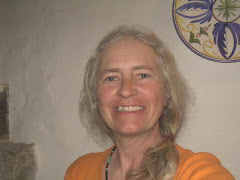How to Go Beyond the ‘Story-Telling’ Habit
Comment: "An area of my ongoing 'work' is to watch my reactions to the happenings that come my way. There are never ending opportunities to be alert and especially so in relationships. To reduce unnecessary suffering to oneself and others, one must be aware of one's habit to add 'mental stories' to explain away what is happening. It seems so hard to stay close to the unfolding life, in the present moment. It seems there is an irritation with 'what is' happening, we want to fight it, and it arises because we want/expect things to be different! It seems the best we can do is to accept it ain't going to be how we want it, then to drop our story telling habit - and this is all one can do and needs to do to go beyond it."
It is a good ability to be able to see one's own story-telling mode when it arises - it takes a lot of awareness to see it, to know it's happening when it does and to recognize it. It takes even more awareness to be able to truly let it go and drop it because one has to be willing to not want to do it. I also agree with you that relationships provide such a fertile growing opportunity, and especially when there is conflict. I grew a lot from such a situation a few years ago. (I'm not saying you have conflict...)
I remember questioning the phenomena of 'story-mode' itself as a whole, I wrote a sequence of articles on it, Why these persistent internal dialogs? (These articles are on my website). What was interesting to me, is I knew this talking was nonsense and defensive as I could see that when I looked at the content, it was totally ridiculous stuff and often not very nice to myself or others.
Also I noticed that when it went on too long unchecked, then it would effect my emotional state, stress built up, I would get all wound up, likely would get sick and then was more likely to react at anything with all the force of the built up energy - with my ego. I saw it later as me allowing personality to activate - to get strong, and then after this would happen, there was nothing more to do, then do more meditations and wait until this state de-energized. Depending on how far I let it go on, it could take from 3 days to a week to de-energize. So I am sure you know all this too, having observed it.
For me I was doing the same, noticing it and setting it aside, and thinking it was enough if I just did this, yet doing this often it still wasn't changing, it was still happening - so persistent. I could even go to sleep at night after meditation and wake up in the morning, talking away. So curious how it was, like it had a wheel of it's own, driving all by itself. I felt I needed to know something else about it in a more general sense to be able to get a stronger control over it. Why did I still do this - get sucked in - even though I knew the harm it caused me and others when I did it, it all reduced to the question of:
"What benefit do 'I' get out of it by doing it?"
I realized that one does a habit or behaves in a way, because by doing so, one gets something out of it. To drop a habit, we have to know what we get out of it by doing it, and only then when we see that, will we be ready to make a clear decision to be able to drop being in that way. One adopts a habit at a point in one's life, because it was helpful for oneself at the time one adopted it. The habit we are talking about is one that has been with humans for a long, long, time, so also why it's so hard to change/transmute/drop.
To change any habit, one must see clear what benefit it gives you to do it. Once one sees the benefit one gets - one can only 'observe this' while/when it happens to receive this understanding, it can't be understood intellectually - then one will have a new 'self-knowledge' about one's conditioned habit/aspect in a general way - what we call an 'aha' or leap in understanding.
Once we have that piece of information, then our willingness to drop it will increase and as we practice doing that more, then also we start to spend progressively more time in quiet than in talking, and our perception and ability to be present will be enhanced along with our doing this. Our growing awareness will start to pick up significantly after that - as moments of quiet time increases...
Hint: One must be willing to enter into a totally unknown, still and quiet field of being. At first this is very scary, because one has never encountered it before or been like this before, so being unknown it will take much courage to enter into this darkness.
Betsy
Monday, November 3, 2008
Subscribe to:
Posts (Atom)




